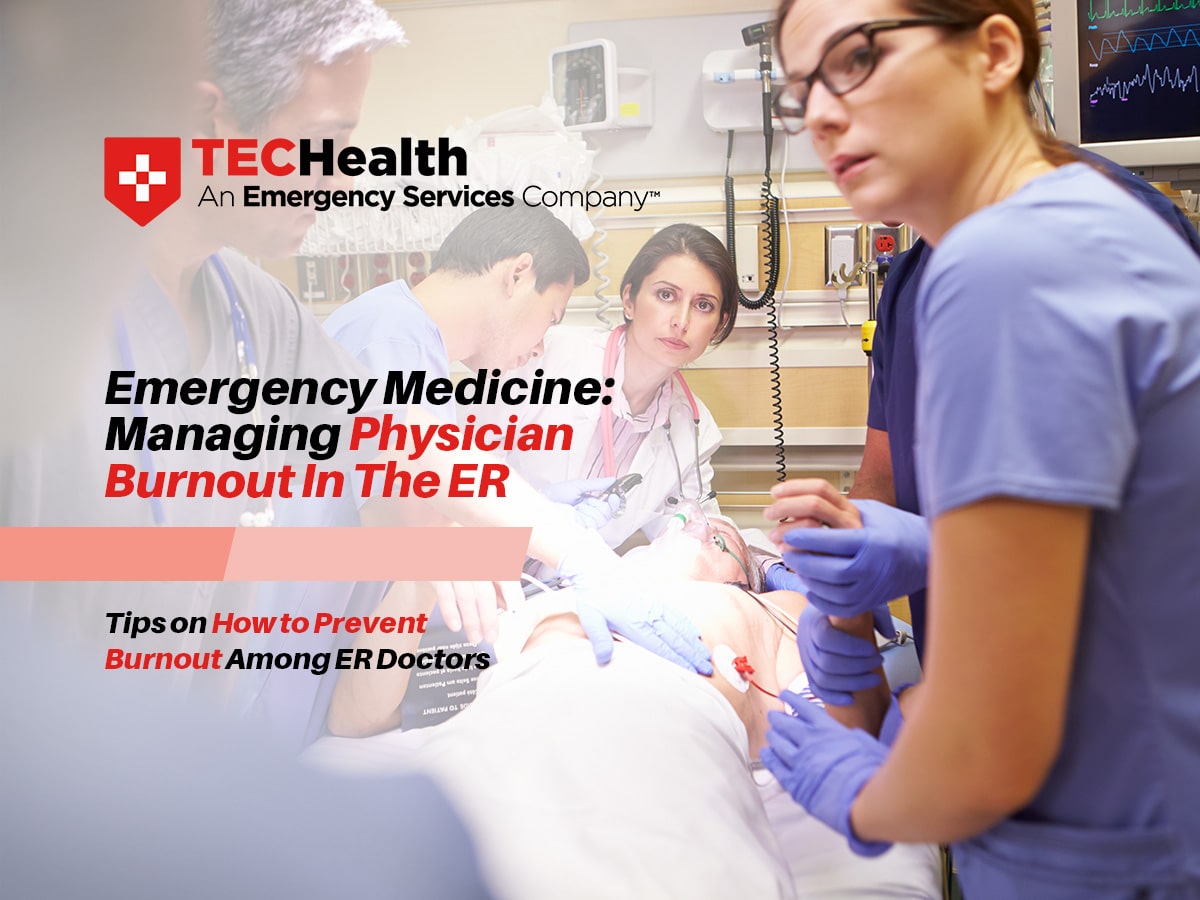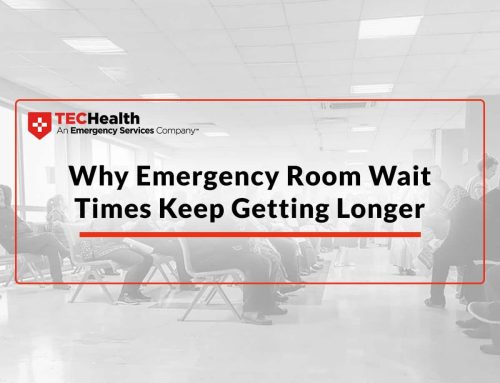
Tips on How to Prevent Burnout Among ER Doctors
Healthcare providers, especially those working in emergency departments, are often under immense pressure due to the nature of their work. Long working hours, high-stress environments, and the constant need to make life-altering decisions can lead to physician burnout and other health problems. Therefore, it is essential to prioritize the wellness of healthcare providers, particularly ER doctors, to ensure that they can provide quality care to patients while maintaining their own physical and mental health.
Wellness is a vital concept at TECHealth. We want our physicians and advanced practice providers to have a healthy work-life and to have a balance with their personal lives. The pressures of providing emergency care are real and often take a toll on the ones providing the care. As a physician leader, you must know your people personally. Only by knowing them well can you notice and intervene when a provider begins to slip into a dark place. You need to have frequent contact to get to know them, and you must exhibit fairness and be honest with all interactions.
As a structure within TECHealth, we have frequent (monthly at the minimum) touch-base sessions with every provider and in doing so assess any ongoing needs, stressors, limitations, or any other factors we should be addressing or acknowledging. These frequent personal interactions are cutting-edge in the Human Resource world and serve to let the provider know we have a keen interest in personal and professional health. We must frequently let our providers know they are appreciated, valued, and use the 5:1 method of communication as a universal coaching tool within TECHealth and believe everyone can benefit from coaching even before an event that would manifest a challenge.
Our central tenet to wellness is personal. People will stay at a job based on loyalty and cohesion far longer than pay alone. Medicine especially is in a tier where many people will prefer job happiness and loyalty over the pay rate or even location. Leadership is inspiring emotion through behavior not a function of policy. Therefore, our foremost component of wellness is how we value our people. We believe that must be shown in every action and reflected in our core values. Accountability, Zeal, Do Something Good, and Empathy are central to how people are treated. We structurally support getting to know your peers on a personal level as nothing inspires loyalty as well as human connections.
Here are some tips on how to prevent burnout among ER doctors:
- Create a supportive work environment: Creating a supportive work environment can help reduce stress levels and improve job satisfaction. This can include providing resources such as counseling, mental health support, and stress management programs.
- Prioritize self-care: ER doctors must prioritize self-care and make time for activities that they enjoy. This can include exercise, spending time with loved ones, and hobbies that promote relaxation and reduce stress.
- Encourage work-life balance: Encouraging work-life balance is crucial for preventing burnout. Hospitals can implement policies that prioritize work-life balance, such as flexible schedules, reduced work hours, and scheduling regular time off.
- Foster teamwork: ER doctors work in teams and fostering a culture of teamwork can help reduce stress levels and improve job satisfaction. This can include team-building activities, regular team meetings, and open communication channels.
- Provide training and education: Providing ongoing training and education can help ER doctors stay up to date with the latest medical knowledge and technologies. This can help reduce stress levels and improve job satisfaction by ensuring that they feel confident in their abilities to provide quality care.
- Provide adequate staffing and resources: Providing adequate staffing can help reduce stress levels and improve job satisfaction by ensuring that ER doctors are not overworked and have the necessary tools and resources to provide quality care.
To make an immediate impact on making your next shift better, do this one simple thing: find at least one person who is doing something well, and tell them thanks and compliment them on their efforts. You will be amazed at how that one step can make a world of difference.
In conclusion, burnout is a real and significant problem within medicine, and especially within emergency medicine. To help combat the inevitable burnout, protect yourself and provide guidance and help to your team. healthcare provider wellness is critical for ensuring that ER doctors can provide quality care to patients while maintaining their own physical and mental health. By creating a supportive work environment and resources, hospitals can help prevent burnout amongst ER doctors and improve the overall quality of care provided in emergency departments.




